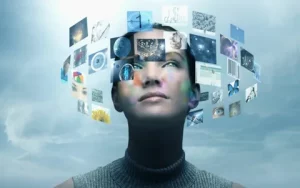In the wake of technological advancements, digital communication has revolutionized how information is disseminated and consumed. From the advent of the internet to the proliferation of social media platforms, digital communication guide has become ubiquitous, reshaping the landscape of mass communication. Emergence of Digital Platforms With the rise of digital platforms such as social media, streaming
In the wake of technological advancements, digital communication has revolutionized how information is disseminated and consumed. From the advent of the internet to the proliferation of social media platforms, digital communication guide has become ubiquitous, reshaping the landscape of mass communication.
Emergence of Digital Platforms
With the rise of digital platforms such as social media, streaming services, and online news outlets, individuals now have unprecedented media and culture mass communication in a digital age access to information and entertainment. This shift has democratized communication, empowering users to participate actively in shaping media narratives.

Image by yandex.com
The Impact on Media
Shifting Media Consumption Patterns
The digital age has witnessed a significant shift in media consumption patterns, with traditional forms of media gradually being supplanted by online alternatives. Streaming services, podcasts, and social media and culture mass communication in a digital age platform have become the preferred mediums for accessing news, entertainment, and cultural content.
Rise of User-Generated Content
One of the hallmark features of the digital age is the rise of user-generated content, where individuals create and share their own media productions. Platforms like YouTube, TikTok, and blogging sites have enabled users to express themselves creatively, fostering a vibrant culture of content creation.
Influence on Traditional Media Institutions
Traditional media institutions have been forced to adapt to the changing landscape of digital communication. Newspapers, television networks, and radio stations have expanded their online presence to remain relevant in an increasingly digital world, embracing multimedia formats and interactive storytelling techniques.
Cultural Implications
Digital Culture: A New Paradigm
The advent of digital communication has given rise to a new cultural paradigm characterized by interconnectedness, diversity, and rapid innovation. Digital platforms serve as virtual spaces where individuals from diverse backgrounds can exchange ideas, share experiences, and form online communities.
Globalization and Cultural Exchange
Digital communication has facilitated unprecedented levels of globalization, enabling cultural exchange and collaboration on a global scale. Social media platforms, in particular, have become catalysts for cultural diffusion, allowing individuals to engage with diverse perspectives and worldviews.
Navigating the Digital Media and Culture in the Digital Age
Despite its transformative potential, digital communication also presents challenges related to cultural appropriation and misrepresentation. The ease of sharing and remixing content online has led to instances of cultural commodification and exploitation, highlighting the need for greater awareness and sensitivity.
Challenges and Opportunities
Information Overload
One of the primary challenges of the digital age is the phenomenon of information overload, where individuals are inundated with a constant stream of digital content. Navigating this vast sea of information can be overwhelming, requiring critical thinking skills and media literacy.
Privacy Concerns
The proliferation of digital communication has raised significant concerns regarding privacy and data security. Social media platforms and online services often collect vast amounts of personal information, raising questions about consent, surveillance, and the commodification of user data.
Opportunities for Diversity and Inclusion
Despite its challenges, the digital frontier also presents opportunities for fostering diversity and inclusion. Online platforms have become powerful tools for amplifying marginalized voices, challenging dominant narratives, and promoting social justice causes.
Ethical Considerations
Misinformation and Fake News
The rise of digital communication has exacerbated the spread of misinformation and fake news, posing a threat to the integrity of public discourse. media and culture mass communication in a digital age Addressing this issue requires a concerted effort from media organizations, technology companies, and individual users to promote fact-checking and critical thinking.
Digital Divide
The digital divide refers to the gap between those who have access to digital technologies and those who do not. Bridging this divide is essential media and culture mass communication in a digital age for ensuring equitable access to information, education, and economic opportunities in an increasingly digital society.

Image by yandex.com
Ensuring Digital Ethics and Responsibility
As we navigate the complexities of the digital frontier, it is imperative to prioritize digital ethics and responsibility. This entails promoting transparency, accountability, and ethical conduct in our interactions with digital technologies, ensuring that they serve the collective good rather than perpetuating harm.
1. How has digital communication transformed traditional media?
Digital communication has revolutionized traditional media by enabling real-time dissemination of news, interactive storytelling, and audience engagement.
2. What are some ethical considerations associated with digital communication? Ethical considerations in digital communication include issues related to privacy, data security, misinformation, and cultural sensitivity.
3. How can individuals navigate the challenges of information overload in the digital age?
To navigate information overload, individuals can cultivate critical thinking skills, practice media literacy, and seek out reliable sources of information.
4. What steps can be taken to bridge the digital divide?
Bridging the digital divide requires investment in infrastructure, digital literacy programs, and policies that ensure equitable access to digital technologies for all.
5. How can digital platforms promote diversity and inclusion?
Digital platforms can promote diversity and inclusion by amplifying marginalized voices, fostering dialogue across diverse perspectives, and implementing inclusive design practices.
6. What role do social media platforms play in shaping digital culture?
Social media platforms serve as virtual spaces where individuals can connect, share, and collaborate, shaping digital culture through the creation and dissemination of user-generated content.
















